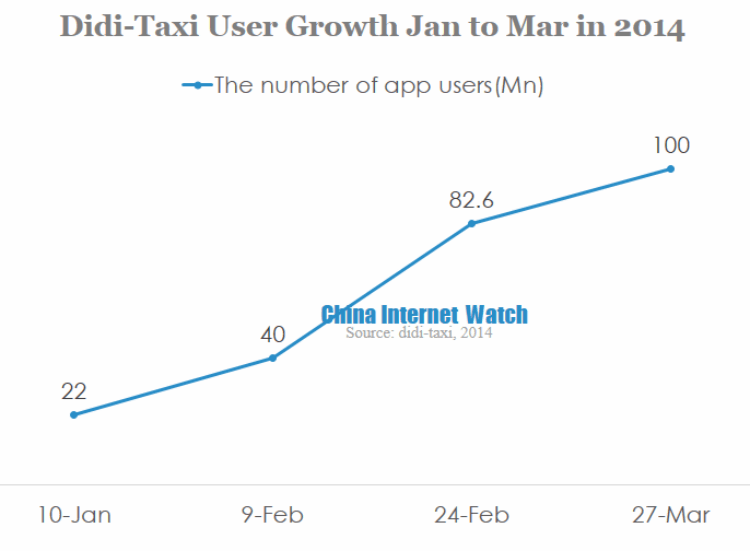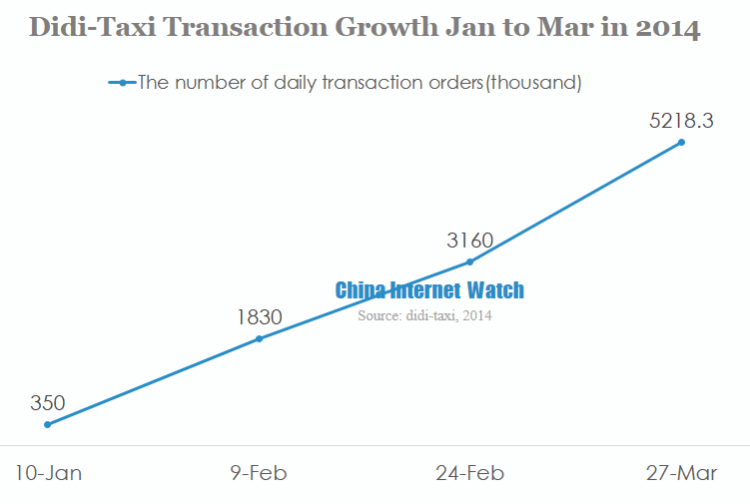
Didi Taxi, a popular Chinese taxi-hailing mobile app backed by Tencent, released its data on Wechat Official Account (didi-taxi) on March 31, 2014. By March 27, the bonus for Didi Taxi app hit 1.4 billion yuan (USD 226.81 million), and its registered users increased to 100 million.

Didi began its bonus plan from Jan 10 in 2014, and its covering cities increased from 32 to 178. The number of daily transactions grew from 320,000 to 5.22 million. During the 77 days bonus, the number of users increased from 22 million to 100 million at the cost of 1.4 billion yuan, which means the average cost of attracting a Didi user was about 18 yuan (USD 2.92). Because Didi is bundled with WeChat payment, therefore, WeChat payment users reached also 100 million.
WeChat (Didi) VS Alipay (Kuaidi)
In the past two months, Didi and Kuaidi (backed by Alibaba) started a “bonus” war for attracting users. The battle heated in February, the bonus for each customer reached 12 yuan (USD 1.94) on February 18, the highest bonus hit 20 yuan (USD 3.24) for customer and 15 yuan (USD 2.43) per transaction for driver. Then the bonus began dropping in March, since March 22, the bonus for customer dropped to 5 yuan (USD 0.81) in Beijing, Shanghai, Guangzhou and other six cities, the rest dropped to 3 yuan (USD 0.49).
Didi has spent 1.4 billion yuan, but Kuaidi has not published its data yet. The battle between Didi and Kuaidi taxi apps actually was the battle of WeChat payment and Alipay. Besides support in cash, WeChat also opened API to Didi taxi, Kuaidi also cooperated with Alibaba’s O2O business to strengthen its competitiveness.
As a matter of fact, though the bonus plan seems expensive, subscriber acquisition cost (SAC) was not high at all compared to usual 40 to 50 yuan (USD 6.48 to 8.10). For WeChat, Didi app also helped increasing WeChat payment users and cultivating mobile payment habit.
Problems Caused by Bonus Plan
The bonus plan attracted public attention and participation rapidly, but it also caused many problems such as:
- The taxi drivers became discriminated towards customers, they tended to refuse picking up customers who did not use mobile taxi app Didi or Kuaidi.
- Some customers’ mobile internet connection was poor or they forgot payment password.
- The explosive user growth led to mobile app break down.
- Some drivers would risk violating traffic law to snap the order while driving.
The decreasing bonus certainly affected customers and drivers’ enthusiasm in using taxi-hailing app, they said they would decrease the using frequency but they would continue using it.